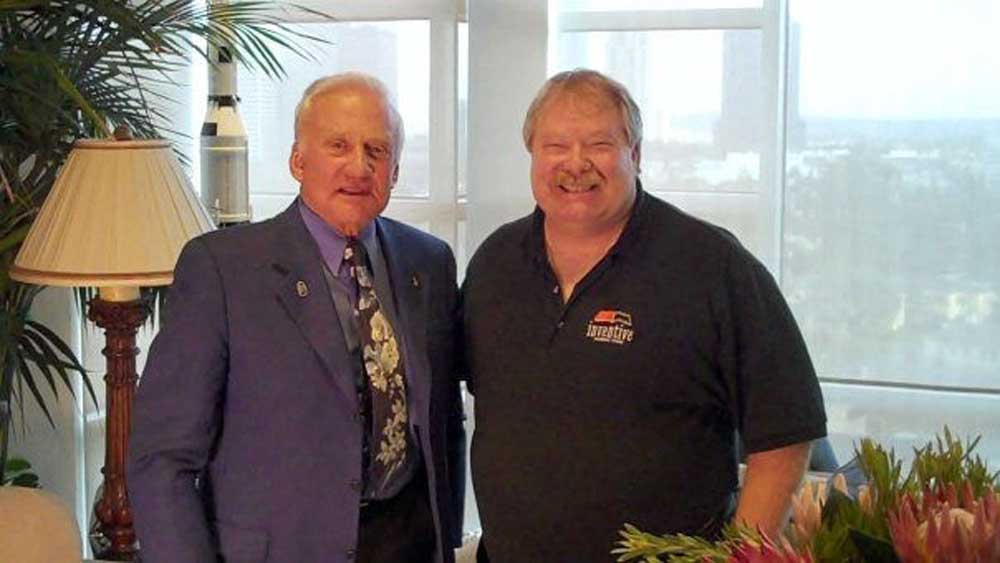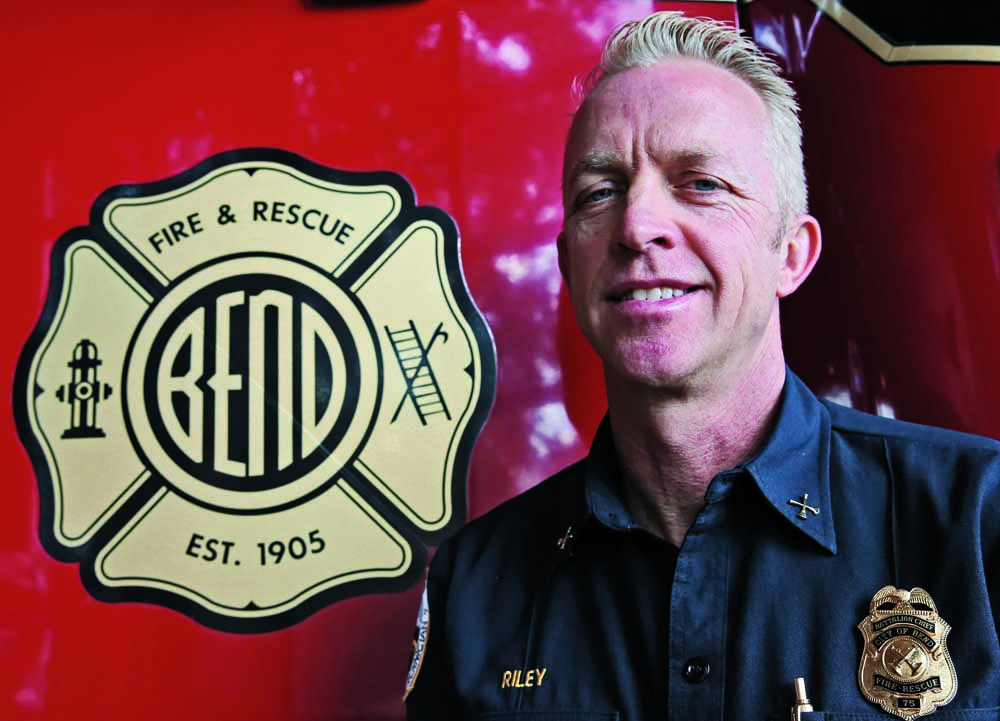The Storyteller
Published 12:00 am Saturday, September 20, 2014

- The Storyteller
In 1965, Bob McHatton bought a Super 8 camera for his family to play with. His son took hold of the camera, began to record, and never looked back. Forty-nine years later, RJ McHatton is still illustrating the lives of others through video.
“I became the filmmaker of the family,” said McHatton.
McHatton, born in Oregon but raised the eldest of six children in Phoenix, has spent the better part of his life telling stories through videos as well as writing.
He believes everyone, whether you’re a veteran, CEO or just somebody’s grandfather, has a story to tell. His infectious grin lights up a room as he makes even the most introverted subjects feel comfortable enough to be recorded. Meanwhile, his commitment to treating everyone with respect and dignity has allowed him to live his life to the fullest, as well as live vicariously through others.
Early Careers
McHatton’s stints at college, first University of California Los Angeles for two quarters, then to the Gray Film Atelier in Hoosick Falls, N.Y., for a year, gave him access to filming equipment and fueled his love for the craft.
Early careers included running and owning movie theaters in California. During that time, he organized several movie and music festivals, allowing him to meet several idols including Frank Capra, Jim Carrey and John Lee Hooker.
In 1988, McHatton stopped by Eagle Crest to see his father before heading to Paris to live Hemingway-esque as a writer. Like many who come to visit Central Oregon, he ended up staying. McHatton took a job as a real estate sales representative at Eagle Crest Resort, and by the following year, he ended up the top grossing salesman.
“Really, real estate and all of my other careers, were just a way to pay for making movies,” said McHatton.
McHatton worked in real estate throughout the Pacific Northwest for 17 years, all the while pursuing his passion as a side business. He started White Knuckles Productions in 1988, and Life & Times Video Productions in 1999, interviewing friends and family and producing fundraising videos for the likes of Hospice of Bend-La Pine.
It was a little more than two decades ago when McHatton made the full commitment to making movies as a career. The turning point came when McHatton took his young son, Jason, to visit his grandfather’s grave. As Jason asked about his grandfather, McHatton immediately wished he had sat down and recorded his father’s stories, voice and laughter. He began to shoot and record real-life stories of inspirational people and places.
“After dad died, I regretted not interviewing him,” explained McHatton. “He was a very dynamic guy. I have found that many seniors have important stories waiting to come out.”
McHatton’s first widely-released movie, “Umatilla,” took a look at the residents living next to the largest stockpile of chemical weapons in the world.
As McHatton interviewed a representative for the military, he asked what it would take to destroy the igloos, or bunkers, where the chemicals are stored. She answered that it would require a fully-fueled jet plane to crash directly into them. The date of the interview was Sept. 10, 2001, the day before terrorists hijacked and flew planes into the World Trade Center. For his efforts, “Umatilla” went to the New York Film Festival and was shown in more than 40 countries.
Filming Biographies
Where McHatton shines is in filming autobiographical biographies. He started with Bend-based Life & Times Video Productions, and in 2005, he moved into recording video biographies full time with Inventive Productions. McHatton travels the world capturing the stories, 70 percent of which are done free of charge through nonprofits and his work with the Library of Congress’ Veterans History Project.
One such documentation was of World War II veteran Bill Endicott. A former Bend resident, Bill, along with his wife, Irene Endicott, have published a newsletter on those Bill served with in the 33rd Division out of Lu Dong, Philippines. In the video, Bill talks about his experiences in the war, his feelings about heroes, and what he has learned that he can pass along to his grandchildren.
“Our family is so happy with how it turned out,” said Irene. “It’s a wonderful thing that RJ does. We immediately referred other veterans to him.”
“RJ has honesty and sensitivity,” Bill concurred. “He realized what my experience was like. He had a real grasp, so people could understand it.”
A typical interview lasts two to three hours but can take as long as five hours. McHatton brings his camera and microphone equipment to his subject’s home. To make them feel comfortable, McHatton chooses a low key place in the house, and prefers to interview one-on-one with no one else in the room. While he used to have a list of questions, these days McHatton likes to let the conversation lead the video.
“The goal is to get their own story in their own words,” explained McHatton. “I try to capture their voice, style, talk, memories and laugh. And, of course, I look for a good one-liner from them.”
Because most veterans don’t consider themselves to be heroes, McHatton’s interview process is centered around providing a safe, non-confrontational space for the subjects to tell their stories.
“In a one-on-one interview, my main goal is to get them to open up to me,” explained McHatton, noting that that is often the hardest part of the process.
After getting the video, McHatton films some “B-role, or additional footage to be intercut with the main shot in the documentary, and gets some old photos and movies to scan for the finished product. At home, the editing can last from a couple of weeks to a year.
In addition to filming veterans, McHatton has worked with several nonprofits, such as the Washington State Holocaust Education and Resource Center. While working on the project, McHatton learned how one person’s story relates to another. He began by interviewing survivors, and then moved on to the teachers who lead the class field trips, and finally some of the students.
“I was amazed how I started with powerful stories of those who experienced it first hand, and ended up with the reactions of those learning about the Holocaust,” said McHatton. “One girl told me how she quit a gang after seeing the exhibits.”
Another group McHatton has spent time with is CEOs of America. He is interested in how seemingly normal individuals have overcome adversity in their lives to become successful.
“I try to find the lessons in wisdom from every interview I do,” said McHatton. “I believe there are incredible lessons of values and character to be learned from those who have been successful.”
Last year, McHatton, while working on a documentary about airplanes, got a chance to interview actors Tom Hanks, Kurt Russell and Harrison Ford. He also interviewed automotive-pioneer Carroll Shelby and former Secretary of State Warren Christopher.
As a testament to his skill, most of McHatton’s videos are referrals.
Always a Storyteller
While working on biographies, McHatton is still writing. He has published three works of fiction and is slowly writing his next one. His first two novels, “The Dirty Deed,” an action-packed modern-day Western, and “My Kids,” a story about a father fighting for the rights of his kids, came out in the spring of 2006. “Bonus Time and Other Short Stories,” a collection of stories on murder and revenge, published in the fall of 2009.
“Writing and making movies are pretty much the same thing,” said McHatton. “They are both telling stories. I try to write one chapter a day, like a screenplay.”
Storytelling is McHatton’s true calling. Whether it is filming his family’s Christmas, interviewing a veteran or writing a novel, he knows how to bring a story to life. No matter if his subject served in a war, lead a business or acted in films, each has values and memories to share and defining life moments to illustrate.







